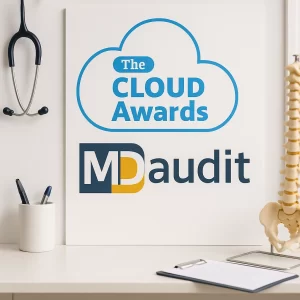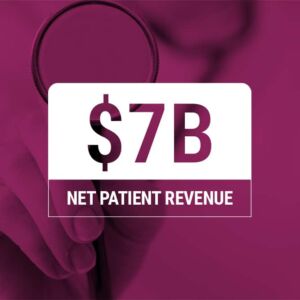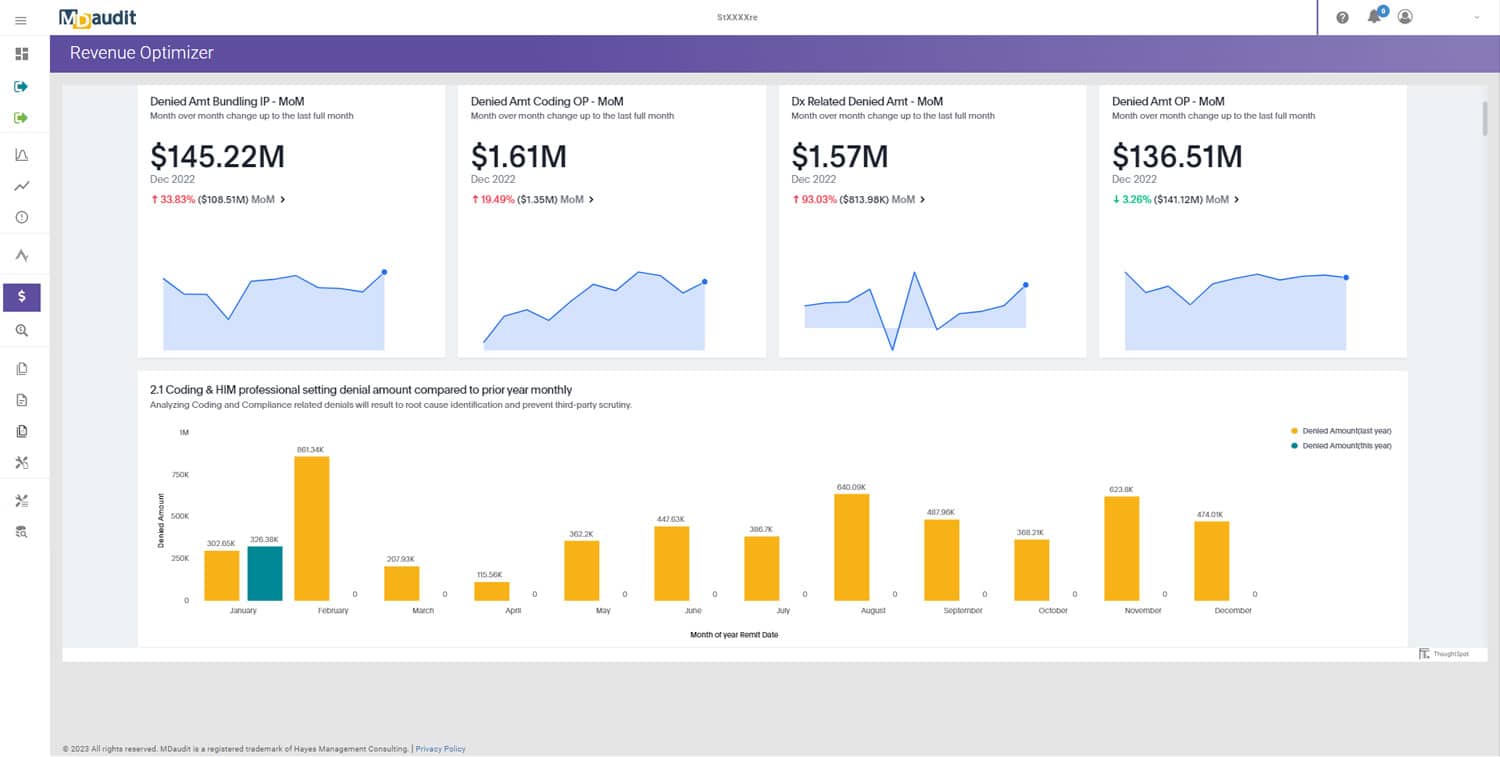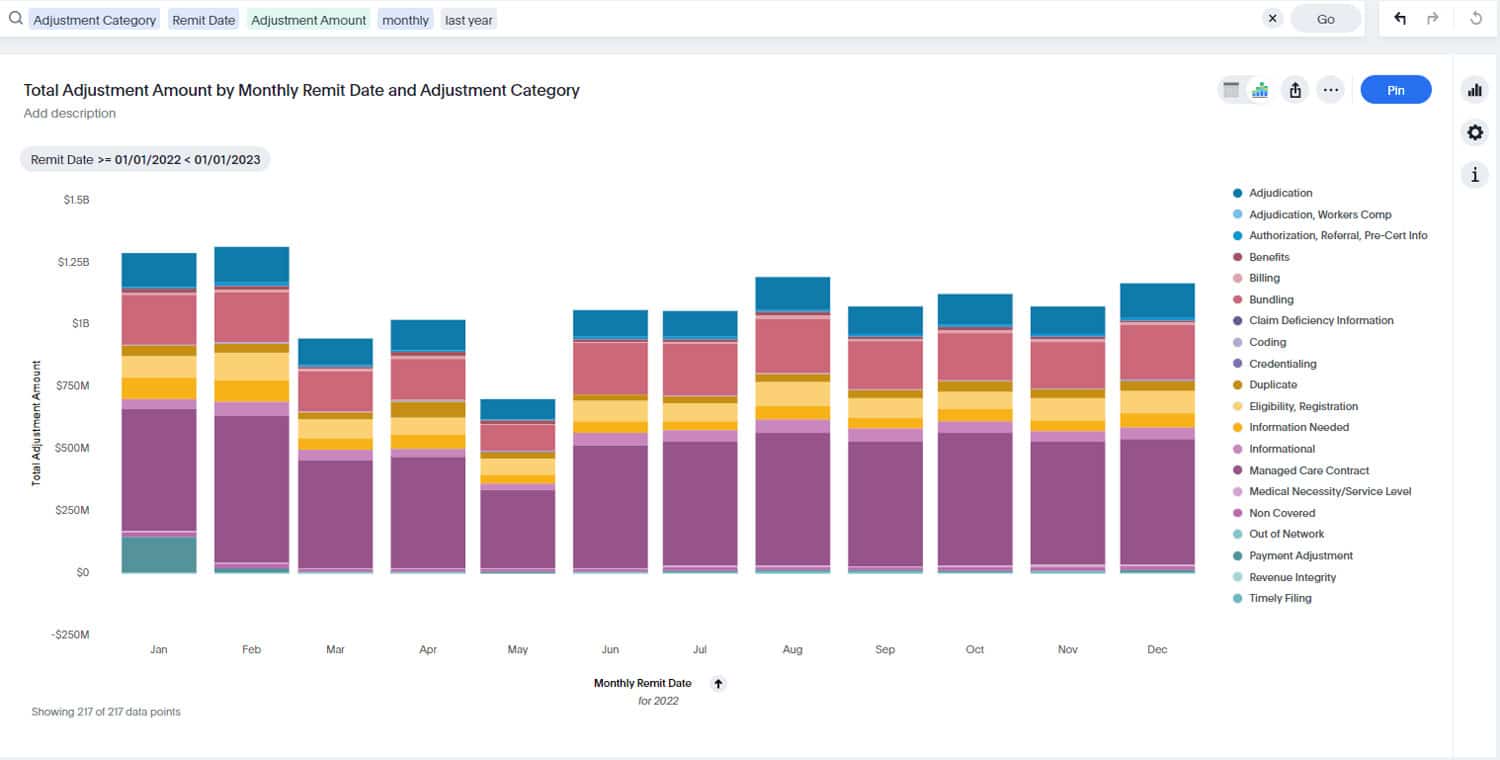Academic Medical Centers (AMCs) are at the heart of innovation in healthcare. They deliver specialized patient care, drive groundbreaking research, and train the next generation of medical professionals. But balancing these important missions isn’t easy, especially in today’s volatile healthcare environment.
From financial pressures to workforce burnout and growing compliance demands, AMCs face a unique convergence of challenges that can hinder performance and growth. Fortunately, forward-looking institutions are turning to technology solutions for Academic Medical Centers to help address these pressures and transform operations.
Let’s look closer at the top challenges today and how MDaudit is helping AMCs overcome them.
The Present-Day Challenges Facing Academic Medical Centers
Academic Medical Centers (AMCs) play a unique and vital role in the U.S. healthcare system. They aren’t just hospitals, they’re hubs for cutting-edge research, top-tier medical education, and complex patient care. But in today’s shifting environment, AMCs are under immense pressure to do more with less, and to do it faster, smarter, and more equitably.
Below are some of the most pressing challenges for AMC’s today:
1. Mounting Financial Pressures
AMCs operate on tight and often unpredictable budgets. Inflation, labor shortages, and rising pharmaceutical and technology costs are increasing operational expenses. At the same time, AMCs must navigate a payer mix that heavily leans on Medicare and Medicaid, which are reimbursed at lower rates than commercial insurers.
Additionally, many AMCs serve as safety-net hospitals, absorbing the cost of uncompensated care for underinsured and uninsured populations. Balancing these responsibilities while staying financially viable is a constant tightrope walk.
2. Navigating Regulatory Complexity and Payer Scrutiny
AMCs sit at the intersection of healthcare, education, and research, each governed by its own complex set of regulations. Compliance isn’t optional, and the stakes are high. From billing audits and HIPAA mandates to accreditation standards and research ethics, AMCs must invest heavily in governance, legal counsel, and internal oversight.
The constant evolution of federal policies, especially regarding Medicare billing and value-based care, adds another complexity that can distract from mission-critical activities.
3. Pressure to Deliver Value-Based Care
Value-based care is no longer a buzzword; it’s the direction of the entire healthcare system. AMCs must evolve from volume-driven models to outcomes-driven ones. But this shift is easier said than done, especially when caring for complex, high-risk populations that traditional quality metrics may not fairly capture.
Building the infrastructure for value-based care, such as care coordination teams, data analytics platforms, and social support networks, requires significant investment and cultural change.
4. Technology Integration and Data Management
Cutting-edge care and research require cutting-edge tech, but that comes with its own challenges. Many AMCs are still grappling with the usability of electronic health records (EHRs), interoperability between systems, and the ever-growing threat of cyberattacks.
There’s also the issue of data overload. While AMCs generate enormous amounts of patient, clinical, and research data, turning that data into actionable insight requires sophisticated tools and trained analysts, both of which are in short supply.
5. Sustaining Research in a Competitive Landscape
Research is one of an AMC’s defining pillars, but it’s also financially vulnerable. Grant funding, particularly from federal agencies like the NIH, is highly competitive and often insufficient to fully cover research costs. That forces AMCs to rely on philanthropic support or industry partnerships, which can come with their own trade-offs.
Commercialization pressures, transforming research into marketable innovations, also continue to grow. Balancing academic integrity with business viability can be tricky.
Technology Solutions for Academic Medical Centers: How MDaudit Supports AMCs
Many Academic Medical Centers are turning to smarter, data-driven platforms to improve efficiency, safeguard revenue, and stay audit-ready amidst growing industry complexities. That’s where MDaudit comes in.
MDaudit delivers technology solutions for Academic Medical Centers that go beyond one-size-fits-all tools. The platform is designed specifically with AMC challenges in mind, offering capabilities and community support that empower AMCs to confidently benchmark, collaborate, and lead.
Key Benefits Include:
- AMC-Specific Benchmarking Tools
MDaudit allows AMCs to identify underpayments and overpayments and other anomalous billing patterns by specialty/facility, etc. This means AMCs can confidently answer the question: How are we performing compared to our peers?
With access to AMC-specific data and real-time comparison features, organizations can make faster, data-driven decisions that support a healthier bottom line.
2. Tailored Support
MDaudit helps reduce risk by streamlining and automating the auditing process. Over the last 12 months, the platform supported AMC’s in the following ways:
- 500K cases completed
- $4.2B in charges audited
- 550K audit findings
- 600 auditors and 45,000 providers audited
These numbers reflect the level of operational excellence MDaudit enables across large, complex AMC environments
3. A Thriving AMC Peer Community
With a dedicated AMC Community of 50+ members representing over $50 billion in net patient revenue, MDaudit fosters peer collaboration and insight sharing. Members gain access to best practices, specialty-specific trends, and shared solutions tailored to the unique nuances of AMCs.
Conclusion
By aligning technology with the specialized demands of Academic Medical Centers, MDaudit helps healthcare leaders invest in their people, technology, and communities so that AMCs can continue to thrive and transform healthcare in the process.







